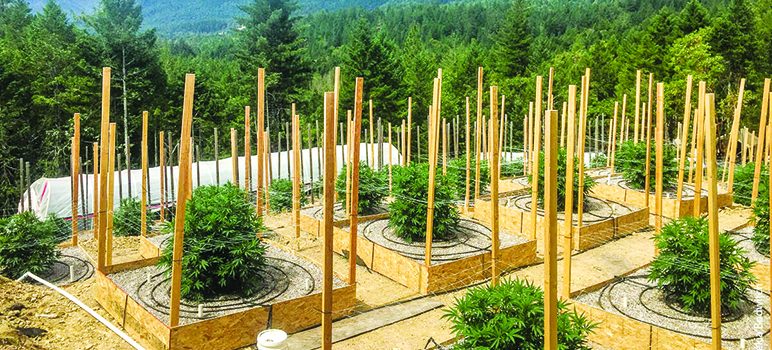Gov. Gavin Newsom recently signed into law a number of bills that are generally favored by the cannabis industry and consumers alike. But the new laws can be described as being only nominally important, and hoped-for fundamental changes to state law on matters like high taxes and over-regulation will have to wait until next year.
For now, the industry will remain hobbled.
That’s mainly due to the Covid-19 pandemic.
As the legislative session was getting underway during the spring and the pandemic’s severity was becoming clear, lawmakers decided to prioritize bills in just three areas: homelessness, wildfires and coronavirus. That any cannabis-oriented legislation made it through at all should be viewed as an accomplishment.
One law will make access to banking slightly easier for cannabis companies. Another will create an appellation program to ensure that labels including place names (like “Humboldt”) appear only on cannabis products made from plants grown in those places.
Newsom also signed a couple of relatively minor bills: one that will allow state-licensed labs to provide testing services to local cops, and another that will give makers of edibles a bit more time to come into compliance with requirements on how much actual THC levels can vary from what’s printed on labels.
“We thank Governor Newsom for prioritizing these bills,” said Lindsay Robinson, executive director of the California Cannabis Industry Association. “Like so many, the cannabis industry has faced a series of unexpected challenges and setbacks in 2020. We look forward to continuing to work with the Newsom administration, and the Legislature, as we pursue a robust policy agenda in 2021.”
That policy agenda will certainly include tax relief. Before the coronavirus outbreak, the industry was hoping state cannabis taxes would be lowered this year, particularly the 15 percent excise tax that sent consumers scurrying back to “black market” suppliers to pay a lot less for their weed than they would at dispensaries.
In fact, weed taxes actually increased this year—to the surprise of nearly everyone—when the California Department of Tax and Fee Administration announced in January that the formula it used to calculate the excise tax, or “mark-up rate,” forced officials to raise the amount collected. Newsom earlier signed a bill that will suspend the tax and fee administration’s authority to raise the rate over the next year. That was “a crucial bill that will bring much-needed financial stability to the cannabis industry,” Robinson said.
AB 1525, the new banking law Newsom signed, will prevent the state from penalizing banks that do business with cannabis companies.
This law “has the potential to increase the provisions of financial services to the legal cannabis industry,” Newsom said in his signing statement.
Maybe so, but that potential is severely limited as long as pot remains federally illegal. Banks have shied away from doing business with cannabis clients mainly because pot remains a Schedule I narcotic under federal law. Moves in Congress to protect banks from liability for serving the industry have been stalled by Senate Republicans. Relief for this, too, might have to wait until at least next year.
Newsom also directed state regulators to create rules that would protect the privacy of cannabis operators seeking financial services.
The appellation bill, SB 67, is meant to stop cannabis companies from slapping the names of geographical areas on products that don’t come from plants grown in those areas. Winemakers in places such as Napa have long enjoyed similar protections.
A fair amount of controversy exists over whether appellation is particularly important when it comes to cannabis. The concept has long been applied to wine: Champagne, for example, can be so named only if it’s made from grapes grown in the Champagne region of France; otherwise, it’s “sparkling wine.”
The “terroir” of wine—the soil, sunlight, climate and other geography-specific conditions in which it is grown—is very important to oenophiles.
Whether or not such considerations truly matter when it comes to cannabis, the law will at least prevent weed grown in an indoor facility in Santa Barbara from being branded with “Mendocino” or “Humboldt.”


> and hoped-for fundamental changes to state law on matters like high taxes and over-regulation will have to wait until next year.
Anyone who has been hoping for such fundamental changes has left the state or is on the waitlist for a U-Haul.
Prop-15 the hell out of them, do it for the children!